
Does Oily Skin Need Moisturiser? Skincare Myths Busted
For years, a popular misconception tormented those with oily skin-the belief that moisturisers are unnecessary, or worse, that they will render skin even greasier. That's why many ask, does oily skin need moisturizer at all? Many believe skipping moisturiser can help control excess oil, but it does more harm than good. Dermatologists and skin care experts agree that hydration is key to treating all skin types. Hydration prevents breakouts, strengthens your skin barrier, and balances oil production. Let's debunk the myth and reveal why moisturiser is essential for oily skin.
Does oily skin need moisturiser?
So, does oily skin need moisturiser? The simple answer is yes! Oily skin also needs proper hydration to remain healthy, just like other skin types. Those with oily skin often mistakenly think that abandoning moisturiser will make them less oily when, in fact, the opposite is true.
Moisturiser helps regulate sebum production
When skin becomes dry, the sebaceous glands create excess oil to compensate for the dryness. This leaves skin with a shiny complexion and clogged pores, causing breakouts. A good moisturiser prevents skin from dryness and inhibits extra oil production.
Prevents dehydration and maintains skin barrier function
Even oily skin can be dehydrated by environmental aggressors, like sun, air conditioning or a harsh cleanser. A good moisturiser fortifies the skin barrier and locks in moisture for a soft and supple texture.
What does moisturiser do for oily skin?
You may have heard that using a moisturiser on oily skin simply makes it feel heavier and greasier. But the right formulation can deliver so many benefits without clogging pores.
Balances oil levels without making skin greasy
Lightweight, oil-free moisturisers balance hydration without the greasy after-feel. They sink in fast, leaving the skin feeling fresh rather than sticky.
Strengthens the skin's protective barrier
A broken skin barrier can result in irritation, heightened sensitivity, and breakouts. Moisturisers containing ceramides, niacinamide, and hyaluronic acid strengthen the skin, making it resilient against environmental stressors.
Prevents overproduction of oil due to dehydration
So, does oily skin need hydration? When the skin is dry, it reacts by producing even more oil. Proper hydration ensures the sebaceous glands operate well and don't produce too much oil.
Helps reduce acne and inflammation with the right formulation
Contrary to popular opinion, using a non-comedogenic moisturiser can benefit acne-prone skin. The acne moisturiser is a great option that soothes breakouts and hydrates the skin.
Should you moisturise oily skin at night?
A night skincare routine is as important as morning care. While the skin is already repaired at night, a moisturiser simply enhances the process. But if you have oily skin, should you moisturize at night? Absolutely, yes!
Benefits of nighttime hydration and skin repair
The skin regenerates while we are asleep, sloughing off dead cells and healing damage caused by pollution, exposure to UV rays, and stress. A night-time moisturiser supports this process by locking in nourishment to keep the skin plump.
Choosing a lightweight, non-comedogenic moisturiser
If you don't want to wake up with an oily face, apply a lightweight, gel-based moisturiser that is non-comedogenic. The gel moisturiser offers adequate hydration while still feeling completely breathable and non-greasy on your skin.
How night-time moisturisation prevents morning oiliness
Apply a hydrating, oil-free moisturiser at night to regulate sebum production while you sleep. Well-hydrated skin is less likely to secrete excess oil, giving you a fresher, more balanced complexion in the morning.
Can I skip moisturiser and use only sunscreen for oily skin?
Many ask, "Can I skip moisturizer and use sunscreen for oily skin?" While sunscreen is an important step in any skincare routine, it is not a replacement for moisturiser.
Sunscreen protects from UV damage but doesn't hydrate
While sunscreens offer critical protection against damaging UV rays, they don't necessarily provide enough moisture. Skin still requires moisture to maintain a healthy barrier and avoid dehydration.
Some sunscreens have moisturising properties, but not all
Some sunscreens contain hydrating ingredients, but those may not be enough for all skin types, particularly in drier weather.
When to use a hydrating sunscreen vs. a separate moisturiser
If you are going with a hydrating sunscreen, look for something with glycerin or hyaluronic acid. For long-term hydration and skin barrier protection, a separate moisturiser is recommended before sunscreen,
Can I apply moisturiser without sunscreen? It's better to use both because they serve different purposes.
Does oily skin need moisturiser in summer?
The question "Does oily skin need moisturizer in summer?" is asked quite often. Hot weather usually leaves oily skin feeling extra greasy, leading to some thinking that moisturiser can be skipped altogether. But you need to maintain your hydration year-round.
Increased sweating and oil production don't mean the skin is hydrated
Sweat and oil may make skin feel damp, but that's not a replacement for hydration. In fact, overwashing and excessive exposure to sun and heat can remove moisture , resulting in dehydrated skin.
Gel-based or water-based moisturisers for summer hydration
In summer, one should switch to a gel-based or water-based moisturiser. Try to find formulations that offer hydration while still being lightweight and breathable.
Skipping moisturiser can worsen oiliness in hot weather
Skipping moisturiser may increase oil production as the skin strives to offset the depleted moisture. This can lead to clogged pores, breakouts, and an unbalanced complexion.
Best moisturisers for oily skin
Finding the right moisturiser is important to keep oily skin healthy and balanced. Look for oil-free, lightweight, and gel-based formulas that hydrate without clogging pores.
Ingredients to look for
- Hyaluronic acid: Delivers intense hydration without feeling heavy
- Niacinamide: Well, if you ask Is niacinamide good for oily skin? Yes, it regulates oil production and calms inflammation
- Aloe vera: Soothes irritation and offers lightweight hydration
Ingredients to avoid
- Heavy oils: These can clog pores and cause breakouts
- Comedogenic substances: Ingredients like lanolin and petrolatum can contribute to acne
- Alcohol-based formulas: They can be overly drying, triggering more oil production
Conclusion
So, do people with oily skin need moisturizer? The answer is yes. Moisturising is a crucial step in skincare, regardless of skin type. Whether it's summer or winter, daytime or night-time, a good moisturiser is essential for maintaining healthy, radiant skin.
FAQs
1. What type of moisturiser is best for oily skin?
A lightweight, oil-free, gel-based moisturiser with hydrating ingredients like hyaluronic acid and niacinamide is ideal for oily skin.
2. Can moisturiser reduce acne in oily skin?
A non-comedogenic moisturiser with acne-fighting ingredients like tea tree oil and cica can help soothe breakouts and prevent further irritation.
3. How often should people with oily skin moisturizer?
Twice a day-morning and night-is ideal to maintain balanced hydration without causing excess oiliness.
4. What happens if oily skin doesn't get enough hydration?
Dehydrated skin may overproduce oil, increasing greasiness, clogged pores, and acne breakouts.
5. Can I use aloe vera gel instead of moisturiser?
Aloe vera gel can provide temporary hydration and soothing effects but doesn't offer the same long-term moisture retention as a proper moisturiser.








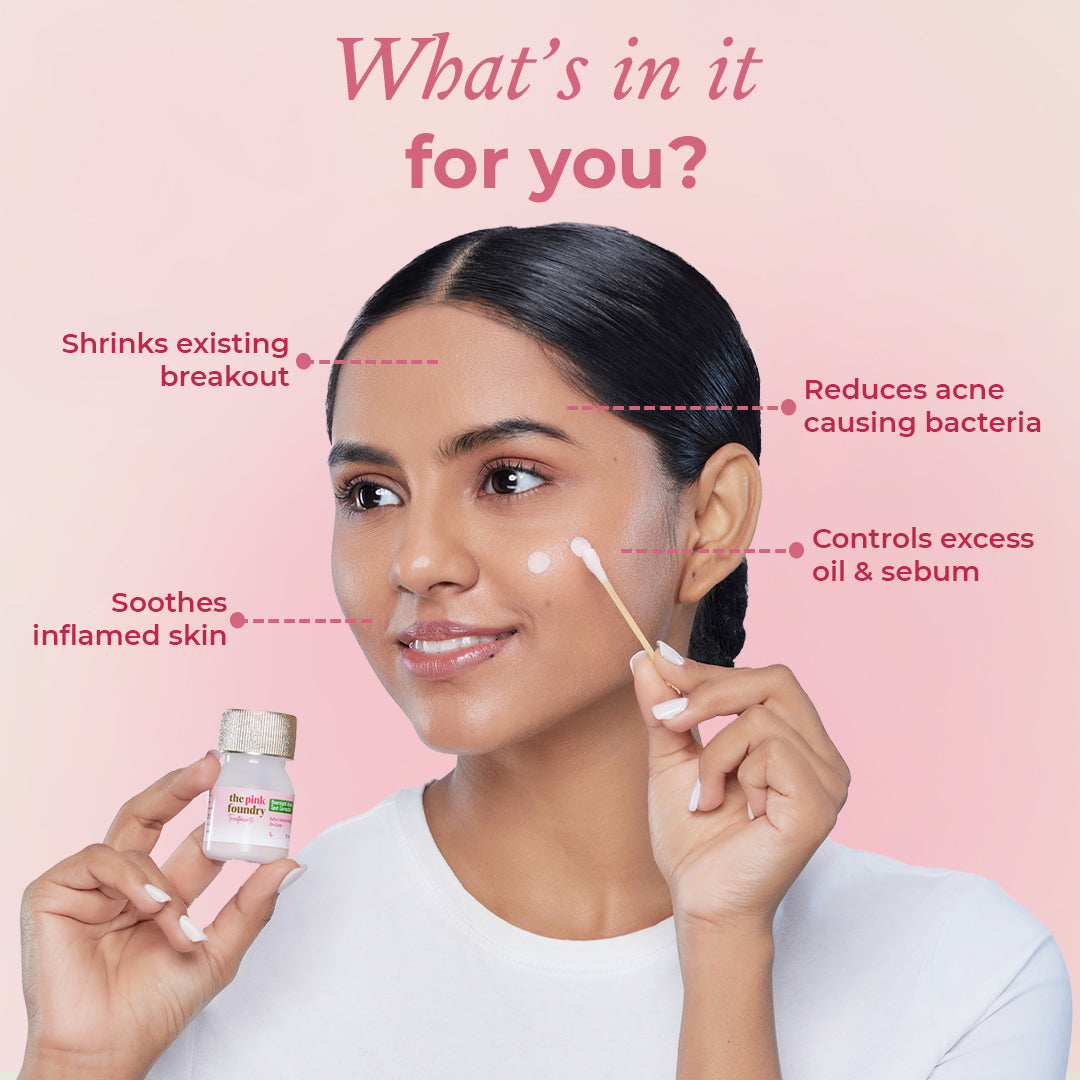
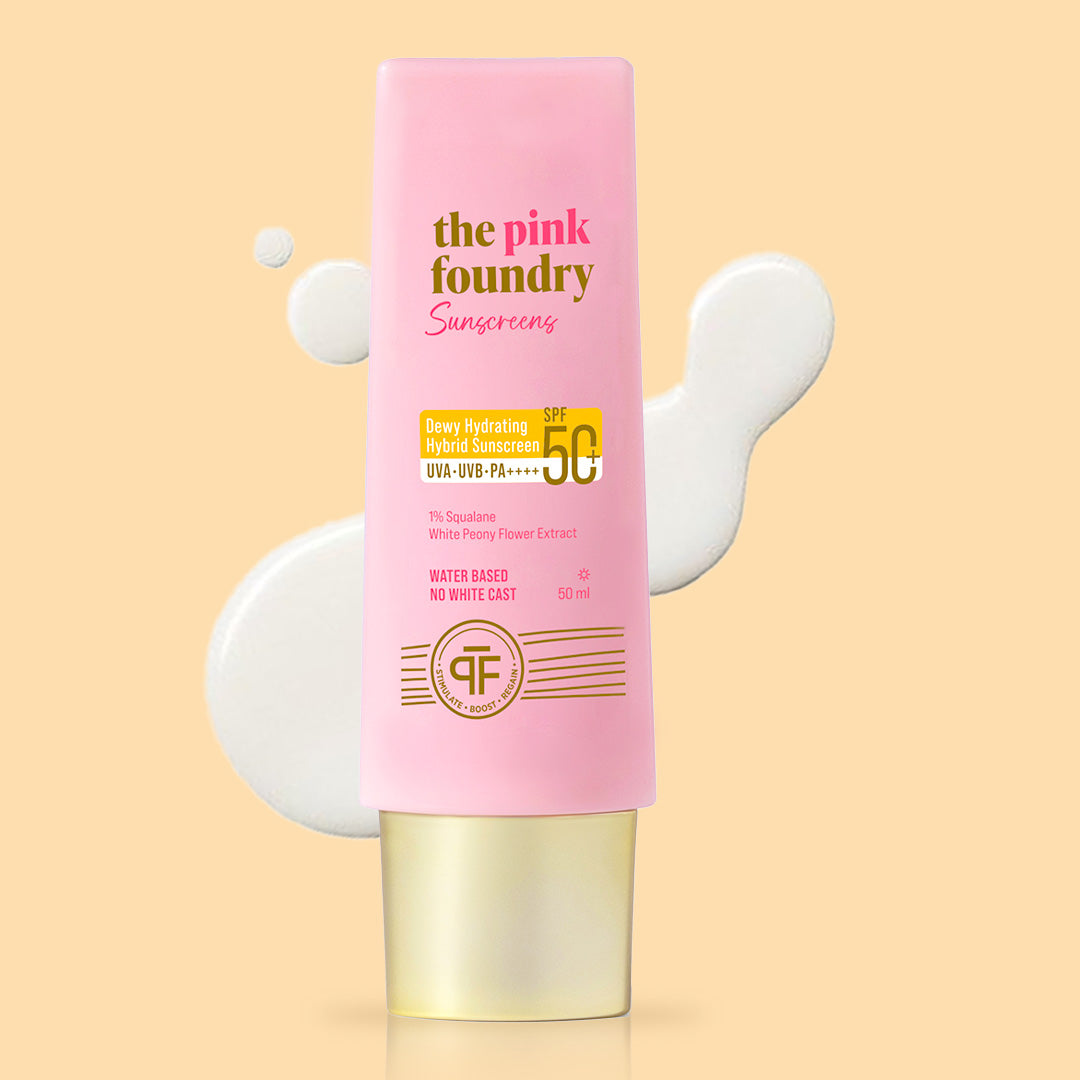
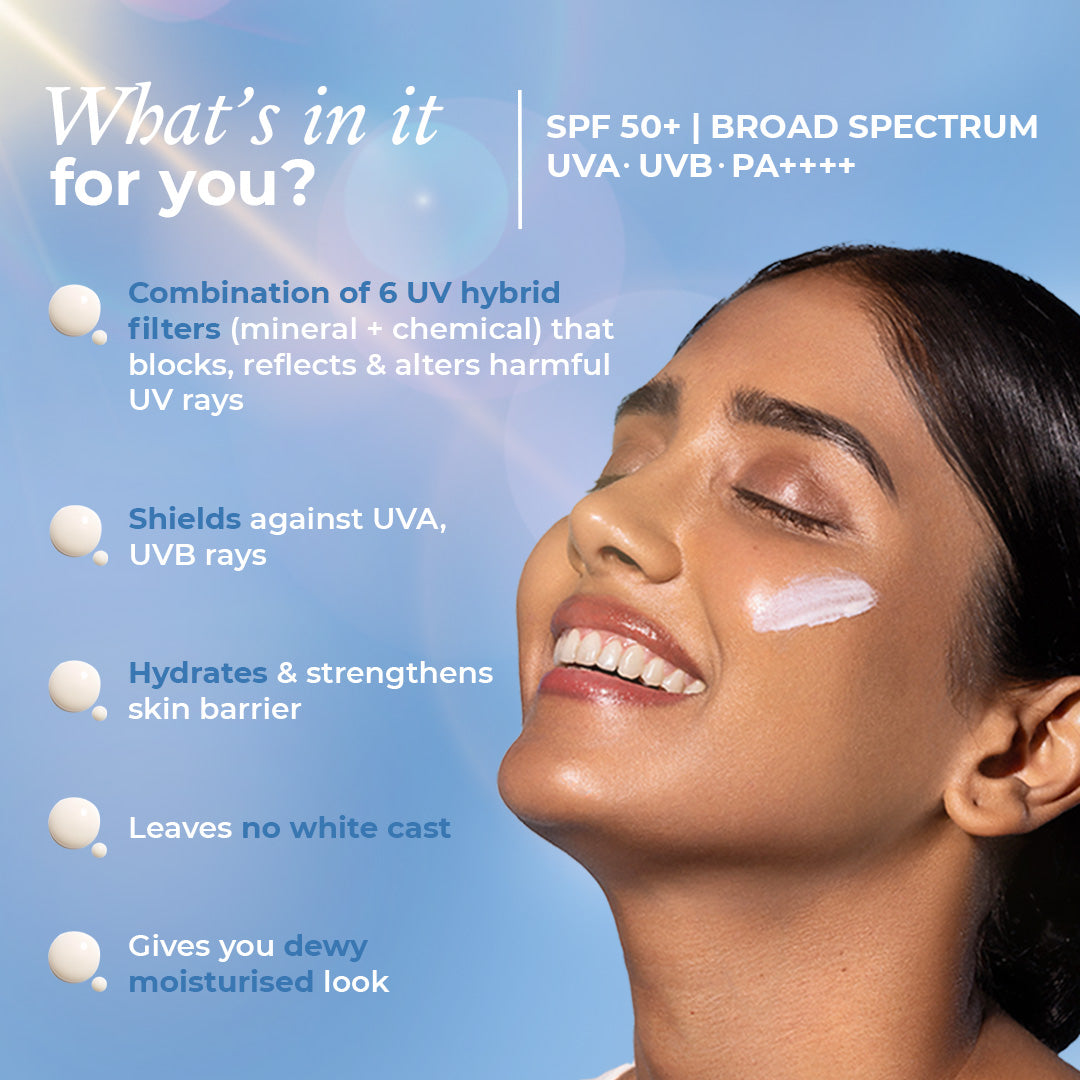


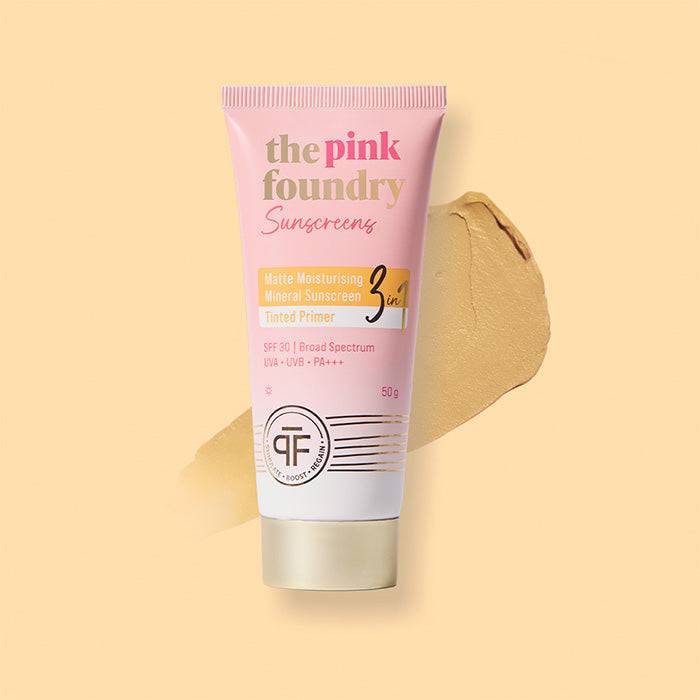
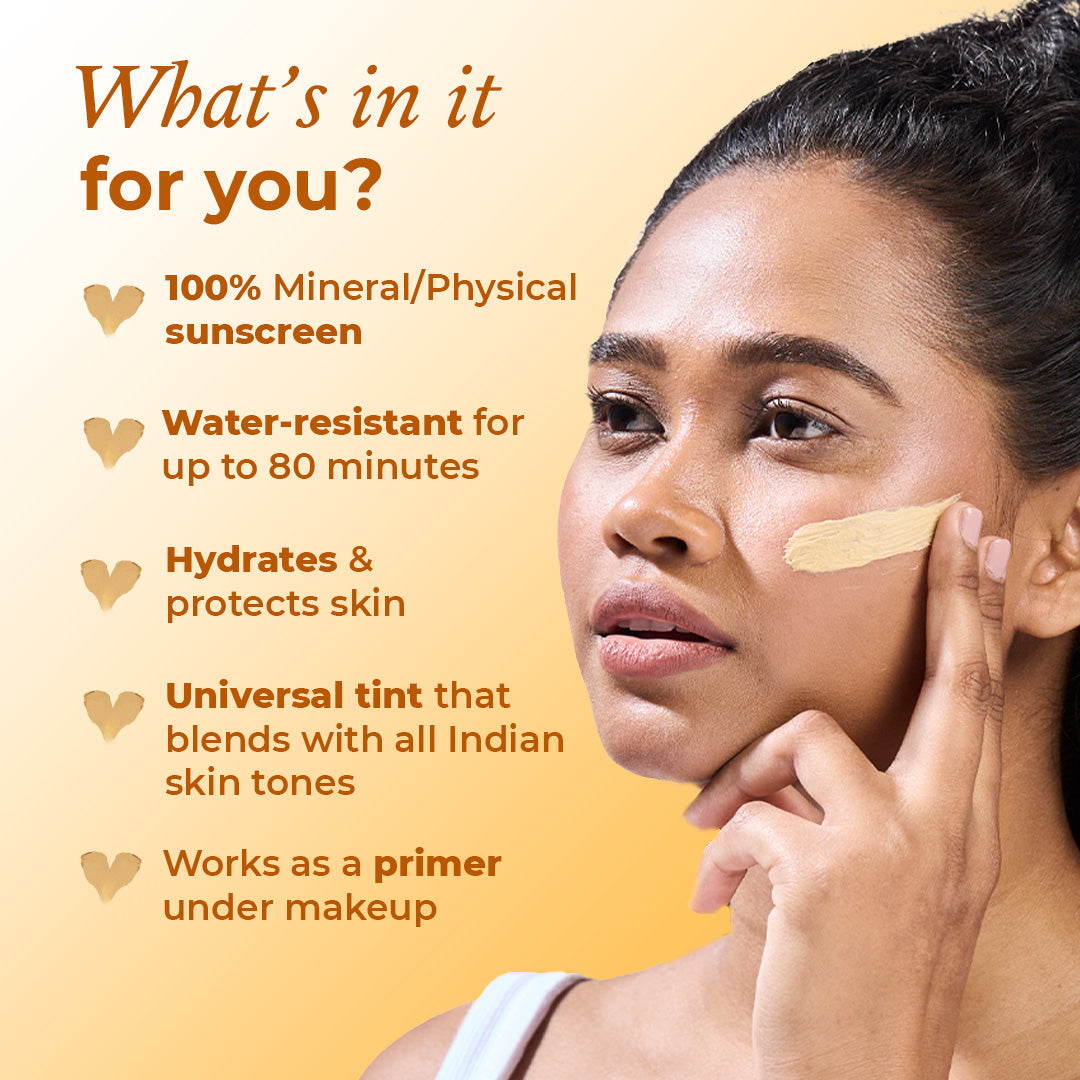



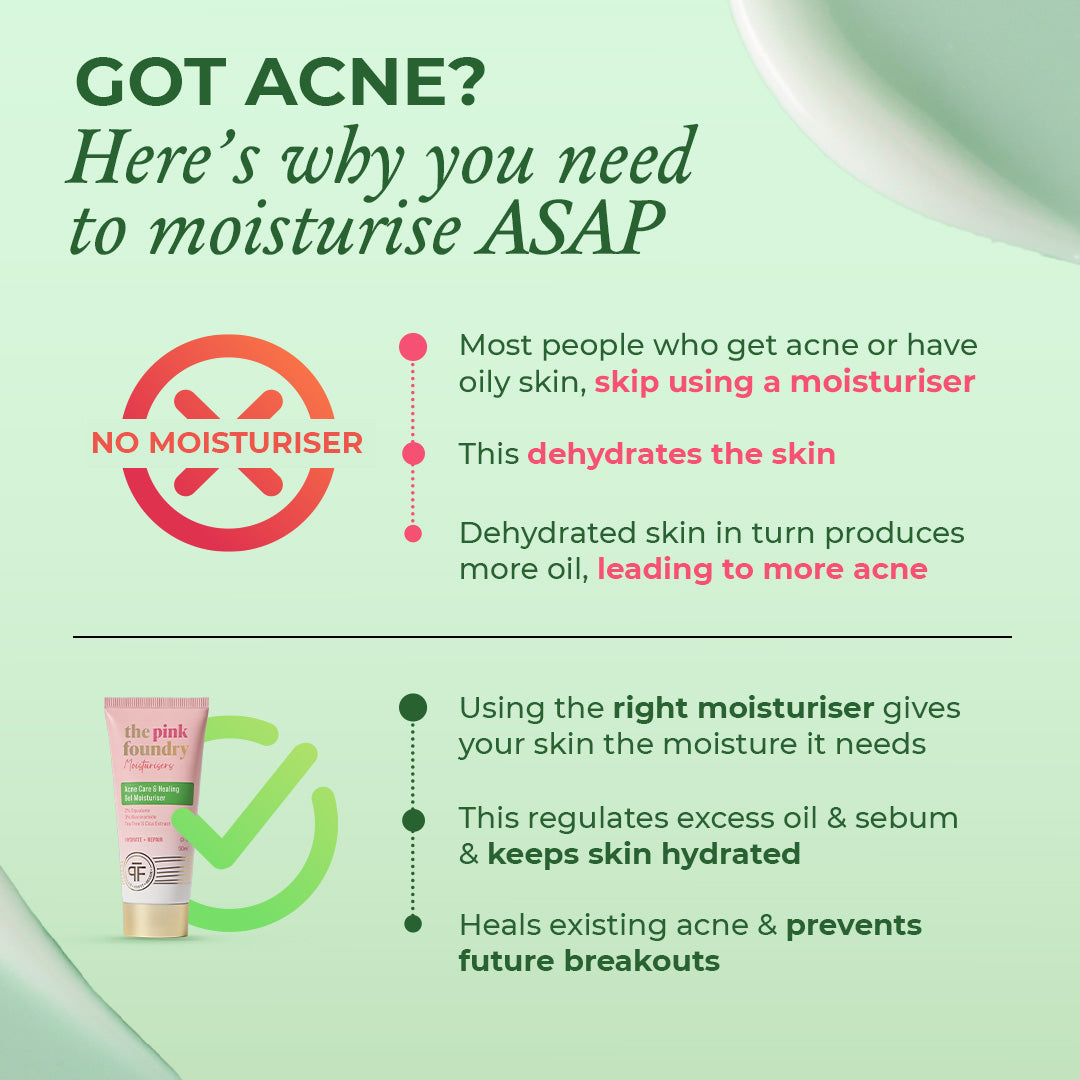
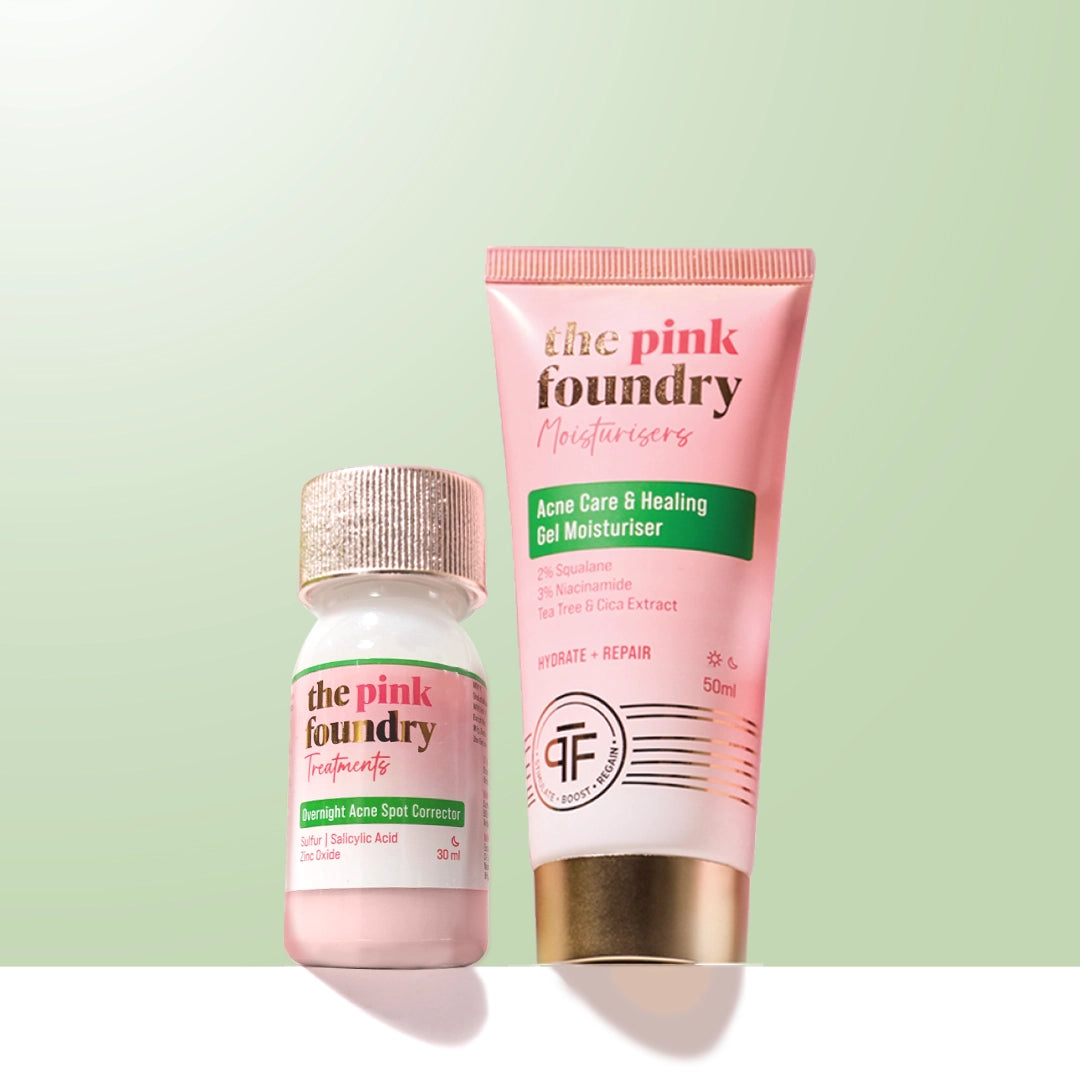
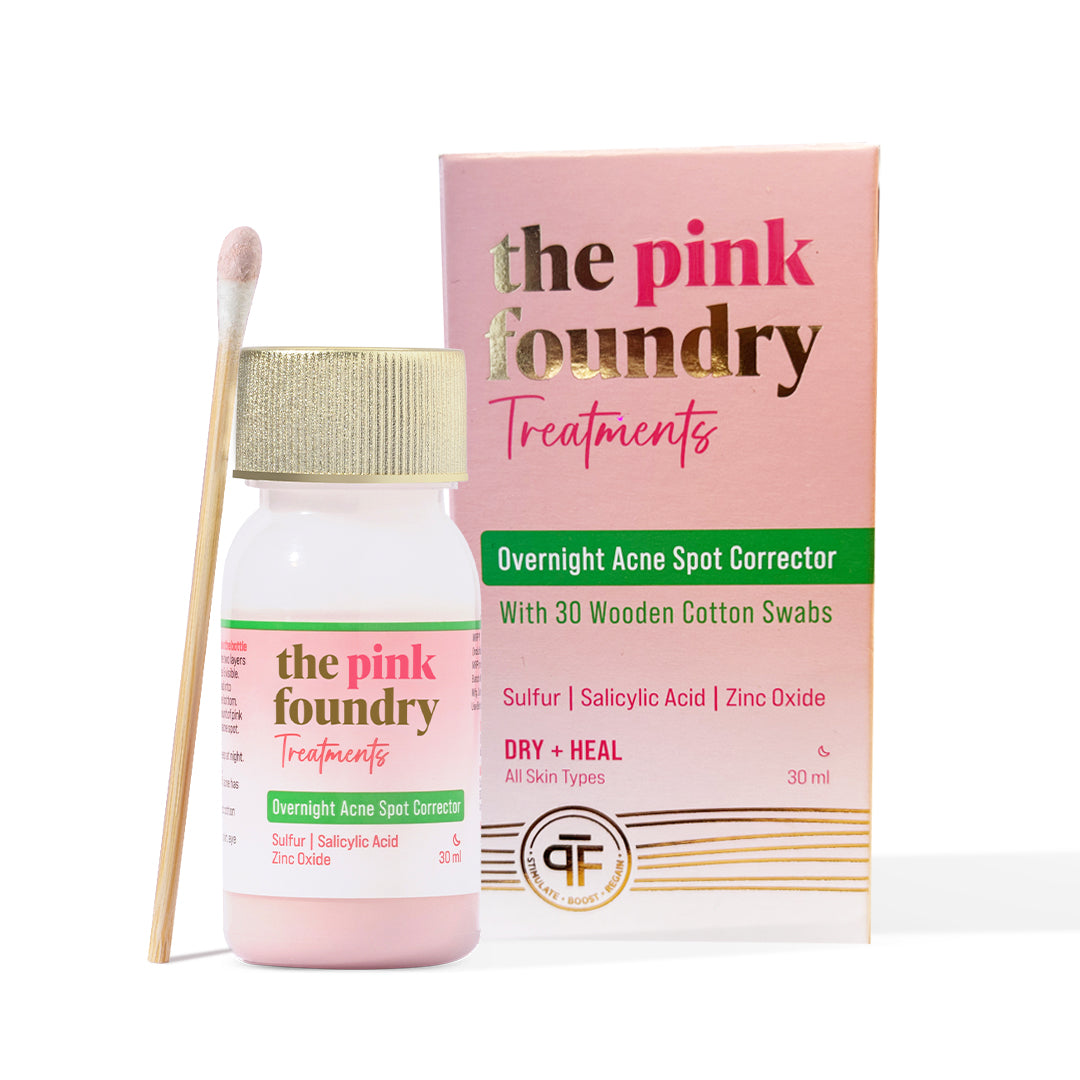
Leave a comment
This site is protected by hCaptcha and the hCaptcha Privacy Policy and Terms of Service apply.